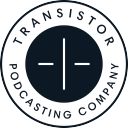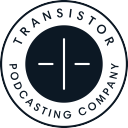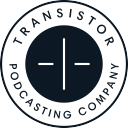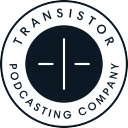Transistor vs Acast (2025 Comparison)

Transistor offers a user-friendly platform for podcast distribution, making it ideal for beginners. With seamless integration and reliable support, it's a great choice for those new to podcasting.
- User-friendly interface for beginners
- Seamless podcast distribution
- Reliable customer support
- Limited monetization options
- Fewer integrations available
Free plan?
YesStarting price
$19 per month
Acast provides advanced monetization and analytics tools, making it a powerful choice for experienced podcasters. Its wide range of integrations enhances your podcasting capabilities.
- Advanced monetization features
- Comprehensive analytics
- Wide range of integrations
- Slightly higher learning curve
- Longer customer support response times
Free plan?
YesStarting price
$14.99 per monthWhat is Transistor?
Transistor is a podcast hosting platform that simplifies the process of publishing and distributing podcasts. It offers a user-friendly interface, making it easy for creators to upload episodes, manage multiple shows, and analyze listener statistics. With Transistor, you can effortlessly distribute your podcast to major platforms like Apple Podcasts and Spotify, ensuring your content reaches a wide audience. The platform's robust analytics provide insights into listener behavior, helping you tailor your content for maximum engagement. Whether you're a seasoned podcaster or just starting, Transistor streamlines your workflow, allowing you to focus on creating great content.
What is Acast?
Acast is a comprehensive podcast hosting and monetization platform that empowers creators to reach a global audience. It offers a suite of tools for publishing, distributing, and monetizing podcasts, making it an ideal choice for both beginners and experienced podcasters. Acast's dynamic ad insertion technology allows creators to monetize their content effectively, while its analytics provide valuable insights into audience demographics and listening habits. With Acast, you can easily distribute your podcast to major platforms and engage with listeners through interactive features. It's a versatile solution for anyone looking to grow their podcasting business.
Pros and Cons of Transistor vs Acast

Pros & Cons of Transistor
- Transistor's interface is designed with simplicity in mind, making it easy for beginners to navigate and manage their podcasts. This user-friendly approach ensures a smooth experience for all users.
- With Transistor, distributing your podcast to major platforms is a breeze. The platform's seamless integration ensures your content reaches a wide audience without any hassle.
- Transistor offers reliable customer support, with a responsive team ready to assist users with any issues. This ensures that you have the help you need when you need it.
- While Transistor offers basic monetization features, it lacks the advanced tools available on other platforms. This may limit revenue opportunities for some podcasters.
- Transistor offers fewer integrations compared to some competitors, which may limit your ability to connect with third-party tools and services.

Pros & Cons of Acast
- Acast offers a range of advanced monetization tools, including dynamic ad insertion, allowing podcasters to maximize their revenue potential.
- Acast provides detailed analytics, offering valuable insights into audience demographics and listening habits. This data can be invaluable for tailoring your content and growing your audience.
- Acast offers a wide range of integrations, allowing users to connect with various third-party tools and services. This flexibility can enhance your podcasting ecosystem.
- Acast's advanced features may require a bit more time to master, which could be a challenge for those new to podcasting.
- Some users have reported longer response times from Acast's customer support team, which could be frustrating if you need immediate assistance.
Transistor vs Acast: At A Glance
Value to Price
Transistor offers excellent value for its price, providing a range of features that cater to both beginners and experienced podcasters. Its pricing is competitive, especially considering the robust analytics and distribution capabilities. Acast, while slightly more expensive, offers advanced monetization options that can be beneficial for those looking to generate revenue from their podcasts. If you're focused on maximizing value, Transistor is a strong choice.
Ease of Use
Transistor is known for its intuitive interface, making it easy for users to navigate and manage their podcasts. The platform's simplicity is a major draw for those new to podcasting. Acast also offers a user-friendly experience, but its additional features may require a bit more time to master. If ease of use is your priority, Transistor is likely the better option.
Functionality
Acast shines in functionality, offering a wide array of tools for podcast monetization and audience engagement. Its dynamic ad insertion and interactive features are particularly noteworthy. Transistor, while slightly less feature-rich, provides all the essential tools needed for successful podcasting. If you're looking for advanced functionality, Acast may be the better fit.
Scalability
Both Transistor and Acast are scalable solutions, capable of supporting podcasters as they grow their audience. Transistor's straightforward approach makes it easy to scale, while Acast's advanced features provide additional opportunities for growth. If scalability with simplicity is your goal, Transistor is a great option.
Integrations
Acast offers a wider range of integrations, allowing users to connect with various third-party tools and services. This can be particularly beneficial for those looking to expand their podcasting ecosystem. Transistor, while offering fewer integrations, still provides the necessary connections for most podcasters. If integrations are crucial, Acast is the better choice.
Customer Support
Transistor provides reliable customer support, with a responsive team ready to assist users with any issues. Acast also offers solid support, but some users have reported longer response times. If prompt customer support is important to you, Transistor may be the better option.
Security
Both Transistor and Acast prioritize security, ensuring that user data and content are protected. Transistor's security measures are robust, providing peace of mind for users. Acast also offers strong security features, but Transistor's reputation for reliability gives it a slight edge. If security is a top concern, Transistor is a safe bet.
Overall Rating
Transistor and Acast both offer excellent podcasting solutions, each with its own strengths. Transistor's ease of use and value make it a great choice for beginners, while Acast's advanced features cater to more experienced podcasters. Ultimately, the best choice depends on your specific needs and priorities.
Transistor vs Acast: A Detailed Breakdown of Key Features
Podcast Distribution
Transistor excels in podcast distribution, allowing you to easily publish your episodes to major platforms like Apple Podcasts and Spotify. Its seamless integration ensures your content reaches a wide audience without any hassle. Acast also offers robust distribution capabilities, but its additional features may require a bit more setup time. If you're looking for straightforward distribution, Transistor is the way to go.
Analytics
Acast provides comprehensive analytics, offering detailed insights into audience demographics and listening habits. This data can be invaluable for tailoring your content and growing your audience. Transistor also offers solid analytics, but Acast's advanced features give it a slight edge. If in-depth analytics are important to you, Acast is the better choice.
Monetization
Acast stands out in monetization, with dynamic ad insertion and various revenue-generating options. This makes it an attractive choice for podcasters looking to monetize their content. Transistor offers basic monetization features, but Acast's advanced tools provide more opportunities for revenue. If monetization is a priority, Acast is the superior option.
User Interface
Transistor's user interface is clean and intuitive, making it easy for users to navigate and manage their podcasts. This simplicity is a major draw for those new to podcasting. Acast also offers a user-friendly experience, but its additional features may require a bit more time to master. If ease of use is your priority, Transistor is likely the better option.
Ad Insertion
Acast excels in ad insertion, offering dynamic ad placement that allows for targeted advertising. This feature is particularly beneficial for podcasters looking to maximize their revenue. Transistor offers basic ad insertion capabilities, but Acast's advanced tools provide more flexibility. If ad insertion is a key focus, Acast is the better choice.
Audience Engagement
Both Transistor and Acast offer tools for audience engagement, but Acast's interactive features provide more opportunities for listener interaction. This can be particularly beneficial for building a loyal audience. Transistor offers essential engagement tools, but Acast's advanced features give it a slight edge. If audience engagement is a priority, Acast is the superior option.
Pricing Comparison of Transistor and Acast
To assist you in making an informed choice, we’ve outlined the pricing plans and essential features of Transistor and Acast. This comparison will highlight the best option for creating your podcast.

Transistor Pricing Plans
- Unlimited team members for collaborative work.
- 50 private podcast subscribers for exclusive content.
- 20K monthly downloads to reach a wide audience.
- Live customer support for immediate assistance.
- 100K monthly downloads for extensive reach.
- Dynamic ads for monetization opportunities.
- Dynamic show notes for enhanced content.
- Auto-post to YouTube for wider distribution.
- 250K monthly downloads for large-scale distribution.
- Remove branding for a professional look.
- Advanced analytics for in-depth insights.
- Built-in podcast website for easy access.
- Scalable options for growing enterprises.
- Dedicated support for personalized assistance.
- Flexible pricing for tailored plans.
- Enhanced security for data protection.

Acast Pricing Plans
- Record and edit studio-quality audio with unlimited hours.
- Distribute your show to every podcast app including Apple Podcasts.
- Monetize through ads from thousands of reputable brands.
- Access to basic podcast website optimized for mobile and search.
- Access to sponsorship opportunities from thousands of brands.
- Offer exclusive content to your Patreon supporters.
- Effortlessly add and change dynamic short audio intros and outros.
- Create videos to promote your podcast directly from Acast dashboard.
- Get prioritized support in multiple languages including English.
- Enable API calls to request show and episode information.
- Automate actions when you publish an episode using WebHooks.
- Protect your email address in your RSS feed with spam filtering.
Our Rating Methodology
We thoroughly evaluate each podcast hosting platform, focusing on key factors like value to price, ease of use, and functionality. By analyzing user reviews and testing features, we ensure our recommendations fit your needs. Each factor is weighted by importance to provide an accurate final rating, helping you make informed decisions.
Transistor or Acast: Which One Matches Your Business Needs?
Choose Transistor If You Need ...
- User-friendly interface for beginners
If you are a beginner or small business owner looking for an easy-to-use podcast hosting platform, Transistor's user-friendly interface and seamless distribution make it an ideal choice.
- Reliable customer support
If you value prompt and reliable customer support, Transistor's responsive team ensures you have the help you need when you need it, making it a dependable option.
Choose Acast If You Need ...
- Advanced monetization features
If you are an experienced podcaster looking to maximize revenue, Acast's advanced monetization tools, including dynamic ad insertion, make it a powerful choice for generating income.
- Comprehensive analytics
If you need detailed insights into your audience, Acast's comprehensive analytics provide valuable data on demographics and listening habits, helping you tailor your content effectively.
Frequently Asked Questions
 Which platform is better for beginners?
Which platform is better for beginners?
 Which platform offers better monetization options?
Which platform offers better monetization options?
 How do the analytics features compare?
How do the analytics features compare?
 Which platform has better customer support?
Which platform has better customer support?
 Which platform is more scalable?
Which platform is more scalable?
 Which platform offers more integrations?
Which platform offers more integrations?

Martin Lunendonk
Martin Lunendonk is a senior tech writer specializing in website builders, web hosting, and ecommerce platforms. With a background in finance, accounting, and philosophy, he has founded multiple tech startups and worked in medium to large tech companies and investment banking, bringing deep expertise and reliable insights to his software reviews.



